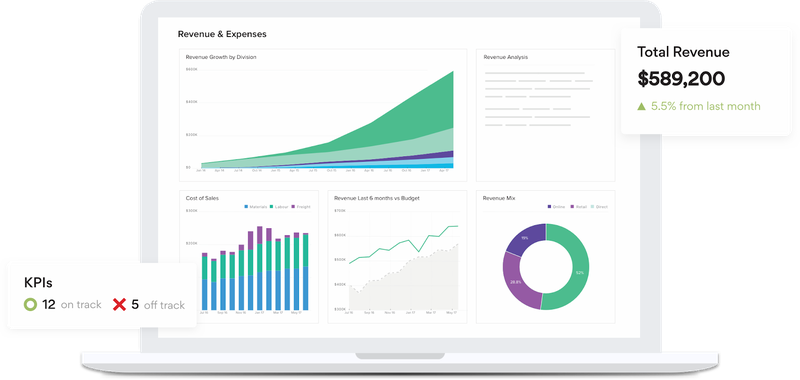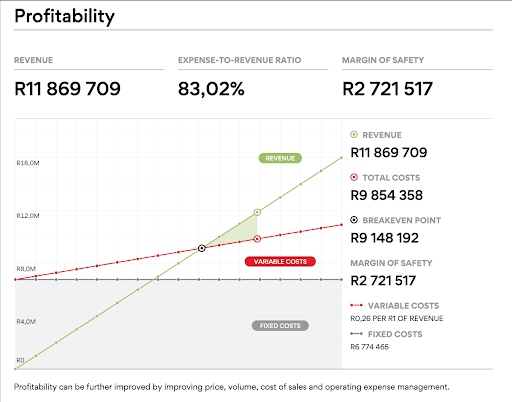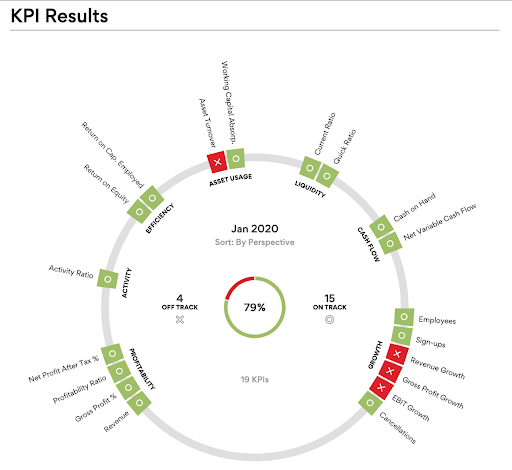
GLOBAL• INVESTMENT• TECHNOLOGY
Matthew Lowry
JUNE 5, 2020
Despite some fantastic ideas, brilliant products and passionate owners, it’s a sad fact that most start-ups never make it to their third year. Tracking KPIs is crucial for ensuring that your start-up dream stays on track and doesn’t turn into a complete nightmare.
At Fathom, we work with sole traders, start-ups, SMEs and large companies, and in that time we’ve learnt a thing or two about what not to do. Here then, are the five mistakes start-ups often make when tracking KPIs.
Running a start-up is incredibly difficult. You are being pulled from pillar to post and wearing a dozen hats. Working on the product, commercialising your offering, hiring staff, and winning business, means that founders often fail to measure their KPIs efficiently.
While an Excel spreadsheet will work in terms of tracking your KPIs, it is extremely time-consuming, and is prone to human error, and is not that informative. This could result in you making a strategic decision based on incorrect data.
KPI tracking should be as automated as possible once you have curated the KPIs that you want to measure. This will let you measure your performance efficiently, whilst not taking up your valuable time wrangling spreadsheets.

Another mistake that early-stage founders make is to select some arbitrary, off-the-shelf KPIs and then track those, without considering whether they are fit for purpose or how they relate to their start-up vision.
An example here may be a metric such as Gross Profit. Gross profit is the profit amount that remains after deducting costs from producing goods or services, with the revenues generated from those goods or services. Whilst this is a good metric to track, and applicable to all industry types, if you are in the early stages of your startup you may not be profitable. This makes the KPI less meaningful, as you may be acquiring users at a high cost (CAC) in an attempt to demonstrate some early traction and product-market fit before raising a seed round, for instance. In these situations, it’d recommended you select the more relevant KPIs, rather than default KPIs.
Having an easy-to-use system that lets you select custom KPIs is important, as it will let you track whichever KPIs you deem important for your start-up, including non-financial ones, ensuring you have visibility of progress and the health of your start-up.
Common KPIs that we see early-stage software start-ups use are:

Another pitfall that founders can sometimes fall in to is over-committing to the number of KPIs that they are tracking, without any prioritisation. This creates a lot of noise and a lack of clarity that we see as detrimental to the growth prospects of a company.
We suggest you select a handful of really important KPIs and ensure that these are the priority. That’s why ensuring that your KPI tracking system lets you create an importance hierarchy for your KPIs is really important. Seedstars incorporates a similar methodology in that they have a North Star metric (the single metric that best captures the core value that your product delivers to customers), with other KPIs and drivers feeding into it.
For example, Airbnb’s core value is “Connecting people who need a place with people who can host”, while the North Star Metric is focused on # of nights booked.
In terms of deciding which KPIs are most important, we recommend that you write down all of the KPIs that you are potentially going to be tracking, and then decide on how a good result will impact your business. Give low impact KPIs a 1 rating and high impact KPIs a 4 rating. The KPIs that have a big impact on your business (e.g. the 4’s), should be the priority, and your KPI system should reflect this hierarchy.

Whilst investor updates may be quarterly or monthly, you will want to keep an eye on your metrics more often than that, running Month to Date (MTD) reports ensuring you can take any immediate steps needed. This allows you the opportunity to pivot strategy and refine KPIs as and when it is needed.
Even if you have not yet raised a funding round, and have no external investors, this is a good habit to get into as it will still feed into your growth strategy, and you will have a greater insight into how the KPI performance is impacting your business.
When you end up getting investment in the future, you will be well prepared to report on these metrics to your investors.
Tracking the KPIs is a good start, but you will need to be comfortable with knowing how to turn around a failing KPI. Like planning a roadtrip, you need to not only know where you are going, and track how to get there, but you need to know what direction to go to if you take a wrong turn, in order to get back on track.
For instance, if CAC is trending higher than LTV, then the unit economics of the start-up do not look attractive to investors, and the viability of the start-up will be questioned. Knowing to trim your marketing costs to bring down CAC, and/or put more emphasis on customer retention, to boost LTV, are the drivers that you need to be aware of in this instance, to turn the KPI around.
If you are not sure on the drivers behind any metrics, then an advisor, such as your venture capitalist or accountant, can help identify drivers to improve upon to then improve the KPI in question.
Ensuring you do not make the above five mistakes will enable you to efficiently track your KPIs and grow your start-up. Once you have your KPI tracking system in place, you can then take decisive action from the insights generated, taking your start-up to new heights.
Fathom’s market-leading KPI analysis and management reporting tool has partnered with Seedstars to give you an extended free trial, which is fully functional. Try it out here and input this code: seedstars2020
Start-ups, angel syndicates and venture capitalists (including Seedstars) use Fathom to measure their KPIs and grow their businesses.